Revisiting Global Generation’s History - 2019
This was a year of endings and new beginnings; in terms of the locations we operate from and the team of people delivering our projects. Here is a flavour of the year drawn from the rich selection of blogs that were posted over the last twelve months.
After seventeen years of taking young people on camp we said farewell to our campsite with two youth camps involving Generators, old and new. Pertwood Organic Farm in Wiltshire has played a special role in the development of GG’s work and in the lives of hundreds of young people that we have worked with. Now the site where our campsite was is being given over exclusively to the birds. One of the older Generators, sums up an experience that echoes many of the comments we have had over the years:
“Both my grandparents are farmers (I come from a long line of Romanian peasants) and being here- especially gazing at all the open fields- almost made me cry with nostalgia. It truly felt like a home. Coming here has made me reconnect with a more innocent sense of self that I always thought had diminished and I am really grateful for the experience.” - Maria, Y13
We look forward to continuing our camps at Wilderness Wood, a working wood in East Sussex http://wildernesswood.org
We always knew the Skip Garden was temporary, as social housing would at some point be built on the land. However, where and how we would relocate was not at all clear, and as 2019 approached one of our mottos, ‘travelling hopefully’ was needed more than ever. As the King’s Cross Estate developed, possibilities for where the Skip Garden could be relocated eluded us. This was not just a question of six skips and a gazebo as in the early days, but a team of 15 staff and an extensive gardening, education and events programme. Whilst we were in discussion with Argent, the developer, about a permanent site which will be leased for a peppercorn rental, this would not come on stream until 2023. In the nick of time, the perfect location was offered to us; 2.3 acres of land belonging to the British Library, just to the West of St Pancras Station, between the Francis Crick Institute and the library. This became the next iteration of the Skip Garden which after local consultation, we decided to call the Story Garden.
By April 2019 discerning eyes passing the space started to notice changes, with foundations being laid and the first of the volunteer groups coming to help build the garden. When we say our gardens are built by a thousand hands they really are! By the end of 2019, contractors, the GG team and more than a thousand volunteers had transformed the once barren site into a working community garden, a home for Global Generation and a Make Space run by Central St Martins and the University of the Arts London. In July we opened with a day full of fun family activities, including: seed sowing, carpentry workshop, the big dig, illustrations of Somers Town makers, arts and crafts and a pay-as-you-feel lunch. We were over the moon to see the garden filled with people and becoming an exciting community space.
Not only was the garden a refuge for the local community but very soon it became a sanctuary for trees. This included 50 three metre high Oak trees. These had been lovingly grown by Heather Ackroyd and Dan Harvey from acorns that were from the original 7000 Oaks planted in Berlin by Joseph Beuys in the 1980’s. The Oaks created a small circular oak wood with a fire pit and story- telling space in the middle; a wood which embodied a message of safety, intimacy and healing. As one of the mothers from the local Bangladeshi community said; “this a place we can be and mix with each other … I feel good in here.” The oaks were soon followed by a gift from the Green Legacy Hiroshima project which was established to safeguard the hibakujumoku (trees that survived the atomic bomb). A central part of the initiative was sending survivor seeds to over 30 countries and 1000s of projects. Thanks to local resident Apolonia Lobo, we were fortunate enough to receive seeds from the survivor trees so that that we could plant trees for a peaceful future in our new garden.
On the other side of the river the Paper Garden has steadily expanded, with a large workshop space in what was the daily mail tool store. During 2019 the car park was converted to a garden and wildlife area, complete with a pond. By the end of the year, two of the original Skip Garden Skips travelled to the Paper Garden, and are now awaiting re-planting and a lick of paint, before being installed as one of GG’s early gardens in the public realm, of what is known as the Canada Water Master Plan. They will accompany a beautiful herb garden outside the old dock office, planted on the hottest day of the year by some of our young generators. Inside the Paper Garden storytelling and all manner of 3D making has continued to flourish. This year we explored the themes of how nature would like the city to be and the underworld. As in previous years, the workshop cycles culminated in Summer and Winter Solstice events, complete with our own Green Man. These were enjoyed by many local families and their children, who were part of the weekly schools workshop programme
In Global Generation, moving has been a way of life; by loading skips on to the back of lorries, by rotating crops, by relocating ourselves. At Regent’s Place in 2019, we organised the refurbishment of a 1970’s milk float into a portable kitchen along with an indoor ‘urban campsite’ which moved several times before landing in an enormous, light filled basement with its own courtyard and kitchen at 184 Drummond Street. This has been a wonderful base for running youth programmes, building relationships with local schools and several community groups in the area surrounding Regent’s Place, including Hopscotch Asian Women’s network (who also have an allotment bed in the Story Garden), the Surma Centre and Camden People’s Theatre, as well as regular workshops for the young patients in the adolescent ward of UCLH.
Meanwhile, within the very corporate campus of Regent’s Place, the GG gardening team created a small garden oasis in the middle of a huge construction site. At 1 Triton they developed the ‘Gantry Garden’ on a large 60 square meter or more cantilevered scaffold platform. “The planters you've made look great!” one of the scaffolders said as he slung another board into place , ''I'm gonna make some like that...Well, I'll have no trouble getting the boards” he laughed.
Even though our activities extended a mile or two more to the West with the Story Garden in Somers Town and Regent’s Place in Euston, we were keen to keep the relationships and the projects live in ‘The Cally’, which is where our future permanent home will be. We ran a summer programme out of an underused council owned resource centre, involving children and young people in cooking, building and outings to explore heritage and new possibilities. By the end of the year, our flagship ‘Friday Night Out’ cooking project and the core of regular children and families, which ran for many years in the Skip Garden had successfully relocated to The Cally.
Global Generation would not be what it is without the many children and young people that bring the gardens to life. Along with regular school workshops, during the year we ran three cohorts of Generators, connected to the three boroughs we work in; Camden, Islington and Southwark. Highlights for the year included days when all three cohorts came together to explore what it means to be a young nature oriented leader committed to social and environmental action in their communities. The Youth Team organised a Birthday Party in honour of ten years in the Skip Garden and 10 years of the Generator programme. This was an opportunity to welcome alumni from the very first cohort of Generators and to say farewell to Rachel Solomon our Youth Programmes Director, after 7 years of great work, shaping the roots and legacy of young volunteers. The year finished with a Generator driven Winter Market, full of products made by them and willing volunteers, including wooden chopping boards and candlesticks crafted out of windfalls donated by the conservation team at Hampstead Heath, who we have collaborated with for many years. Last but not least was the completion of our Seeds for a Better world programme and the beginning of the Voices of the Earth project; both funded by the National Heritage Lottery.
With much thought and consideration we sadly came to the decision to close our commercial café, which meant Micky Reedy, Maisie Collins, Johanne Vestergaard, and Nisha Phillipps finished regular employment with GG. We now have a community kitchen and will be running an events programme in the Story Garden, so we look forward to seeing many of the chefs in a freelance capacity in the months and years to come.
By December five new members of staff had joined us; one youth programme facilitator, Kelsea Sellars, three community gardeners, Charlotte Gordon, Martin Shaw and Malaika Benn Peachy and a new Head of Gardens, Sue Amos, who took over from Julie Smith. To share practice and ensure the ethos of GG is kept alive, meaningful and relevant we held our annual staff retreat at Pertwood Organic farm and our bi-annual away days were at Highgate Woods and at Organic Lea. Whilst our geographic foot print has grown, the prevailing message that came through these days was; let's root down, let's grow deeper roots through meaningful relationships with the people who live in each of our locations. Growth over the next years will be in depth, not in breadth.

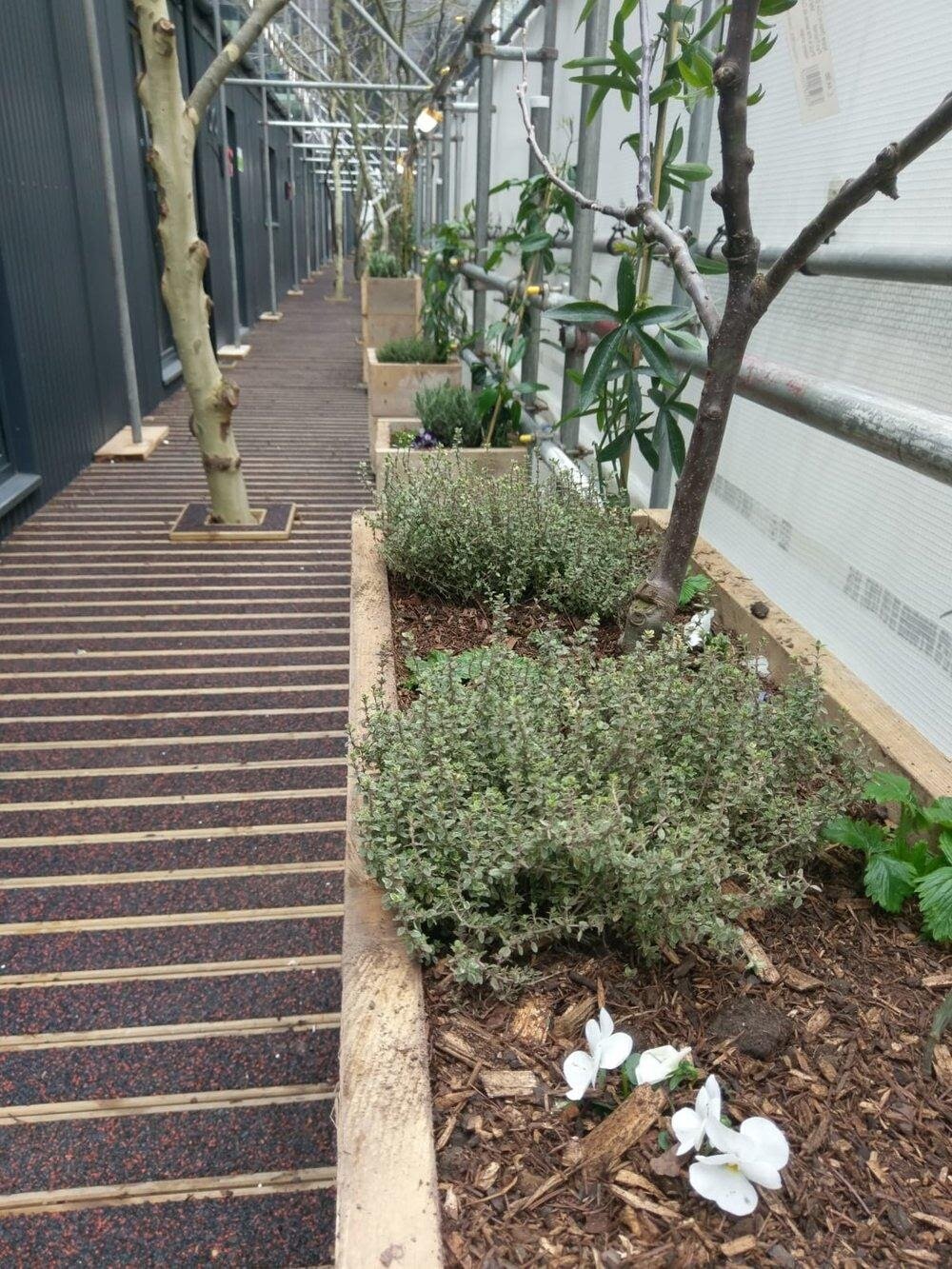
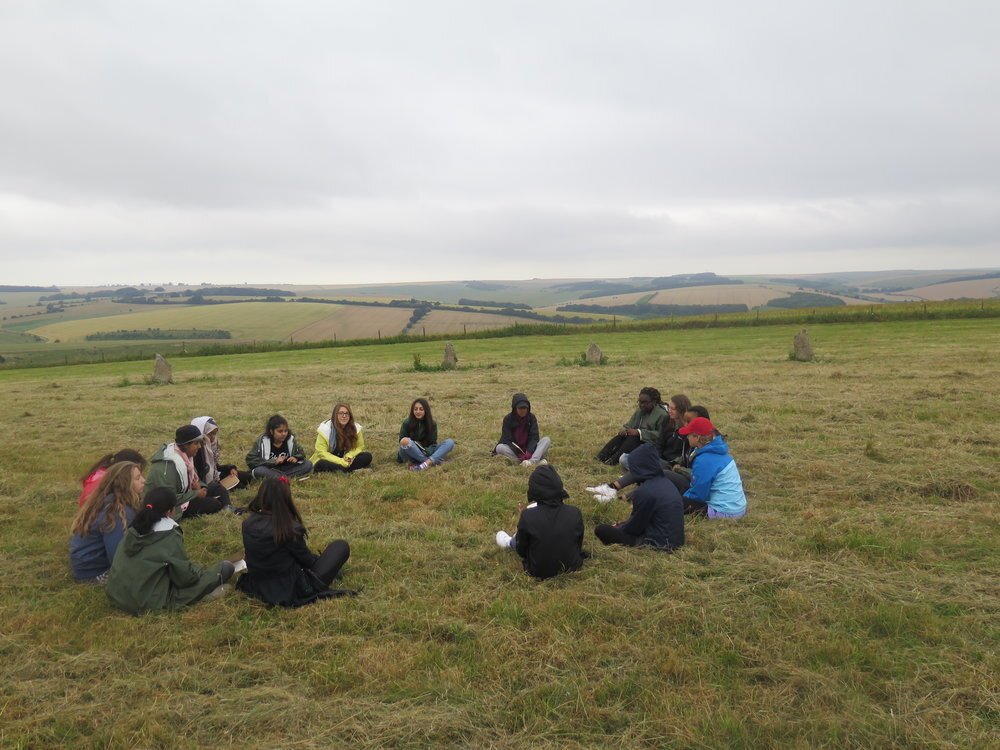
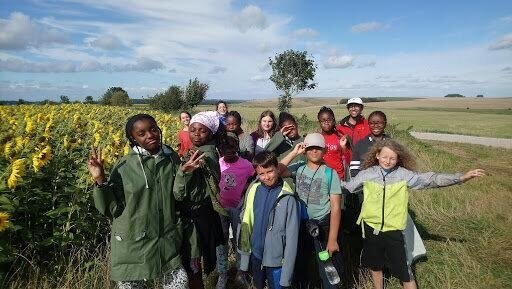

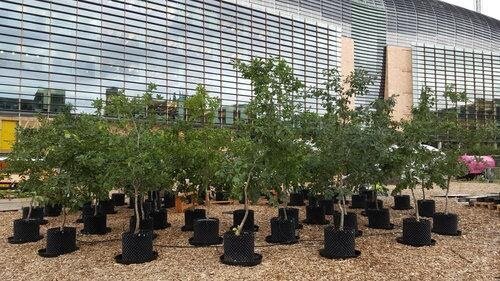
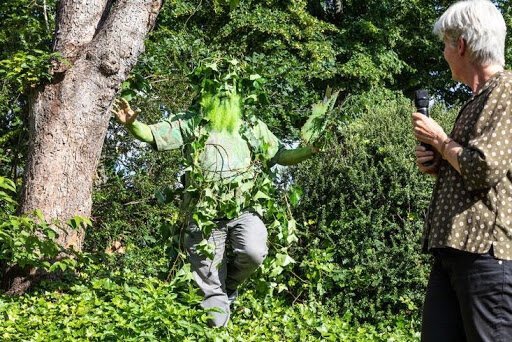
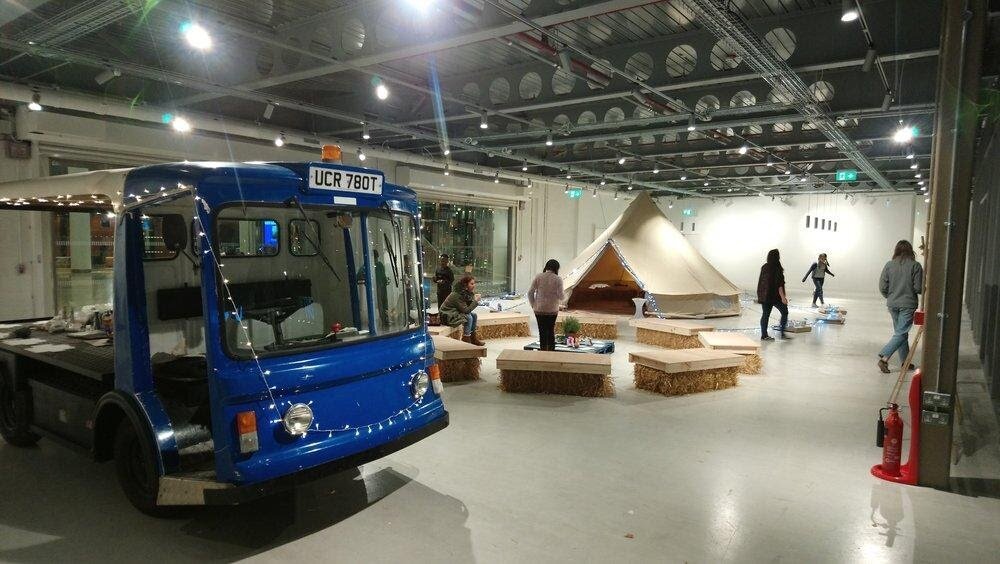

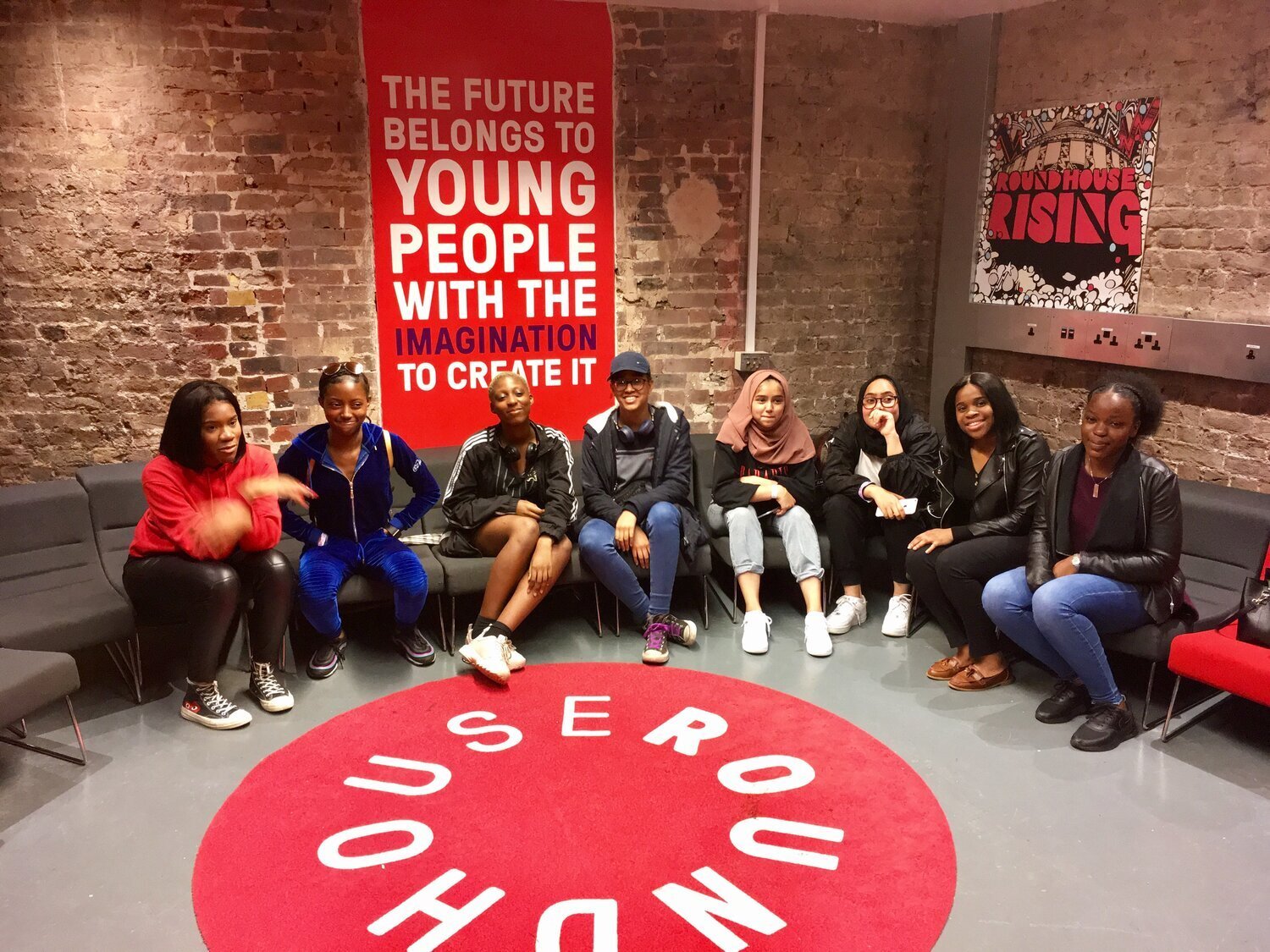
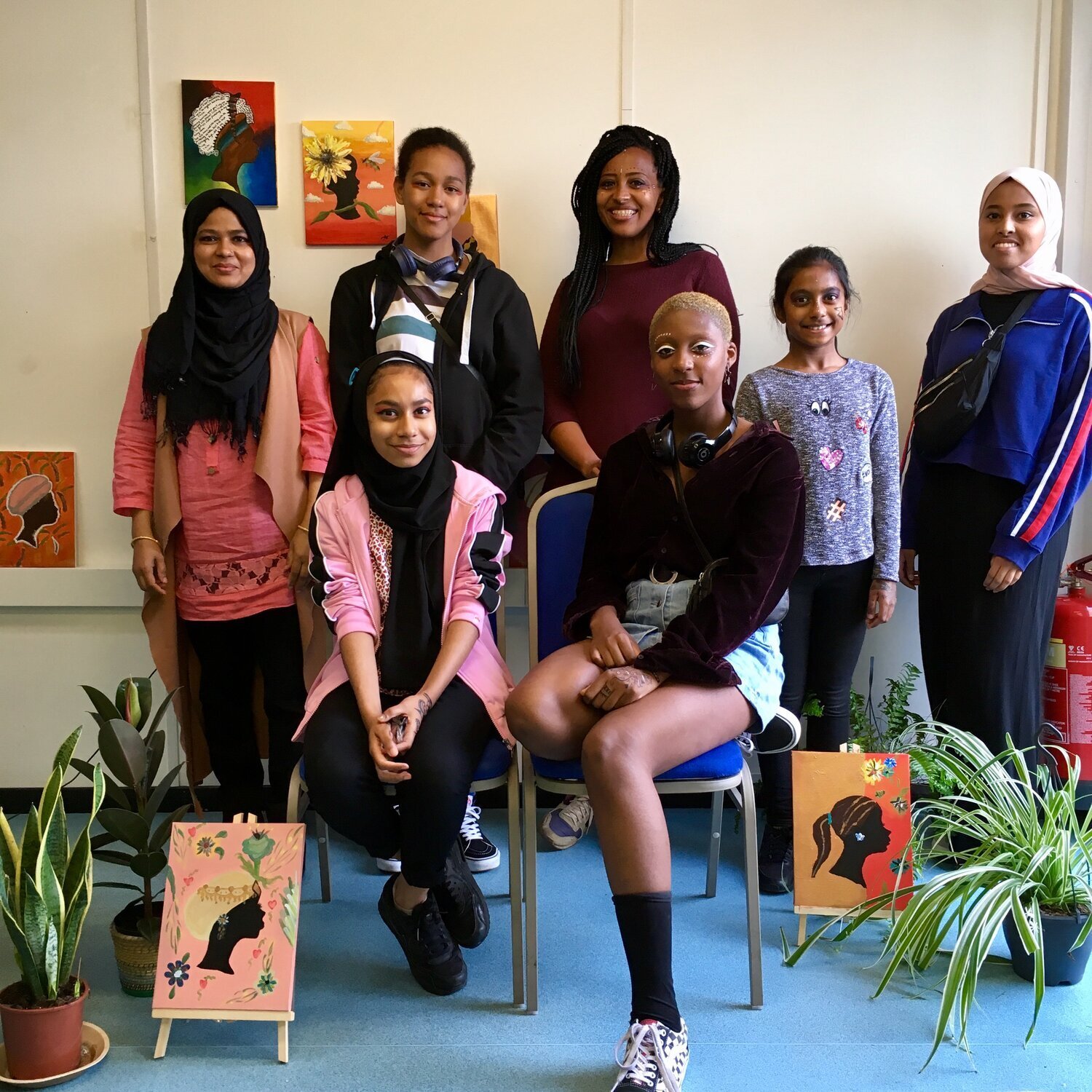
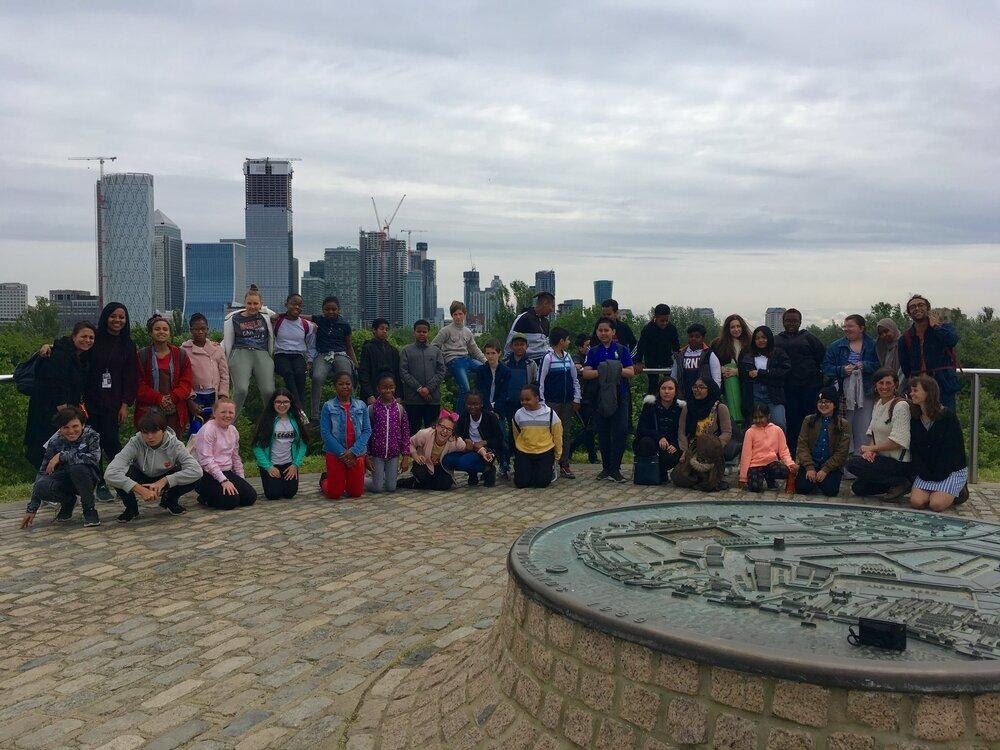

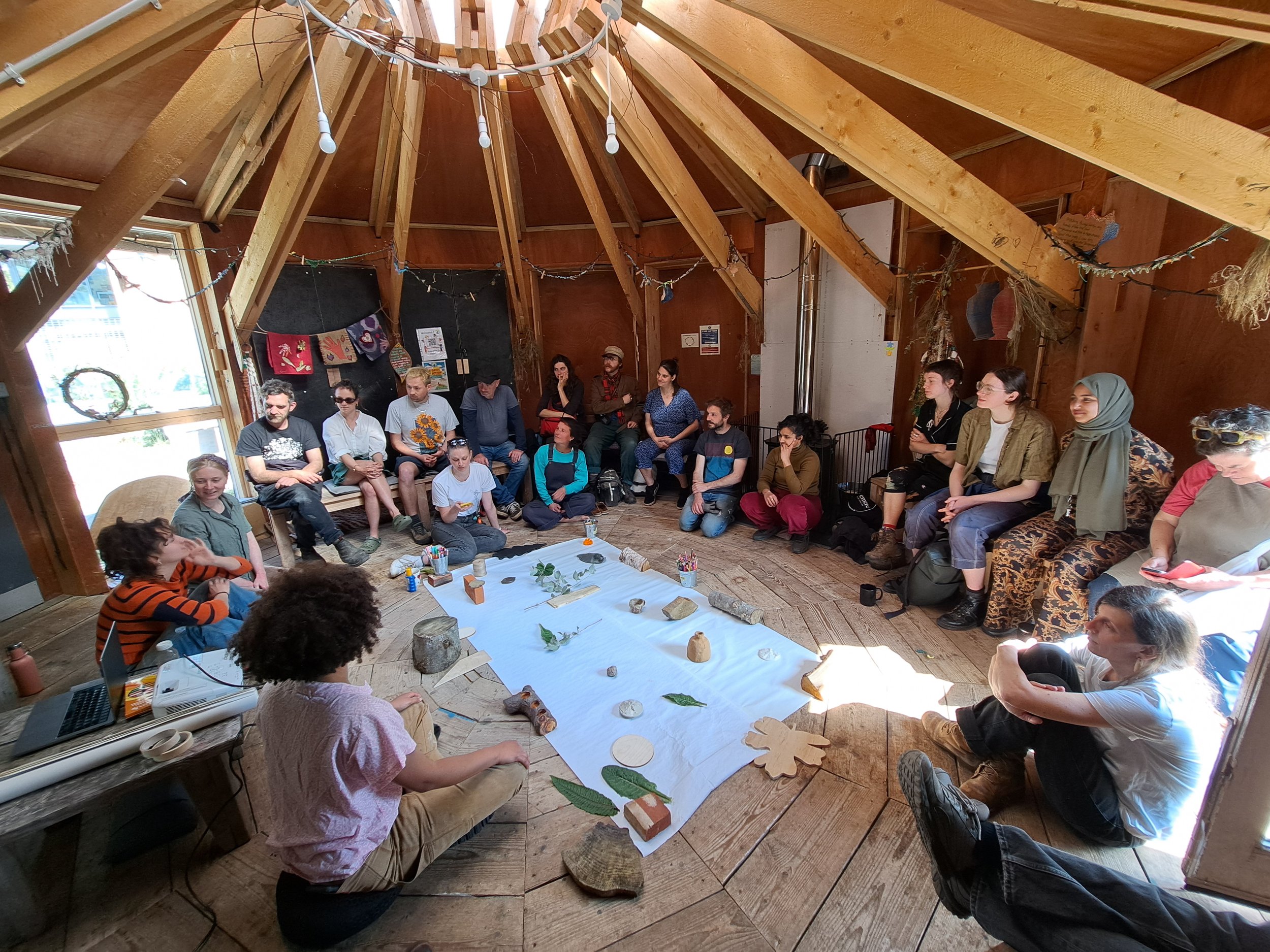
It’s a beautifully golden afternoon in late October, and I am sitting in Somers Town on a table outside the pub, admiring the seven foot sunflowers that are growing opposite the medical centre.